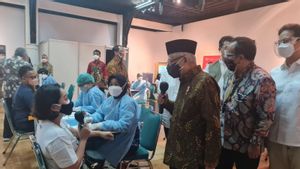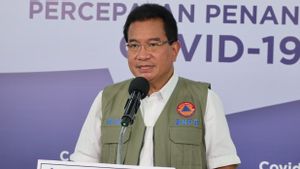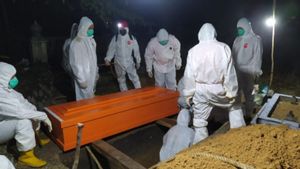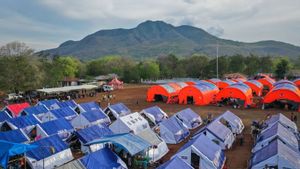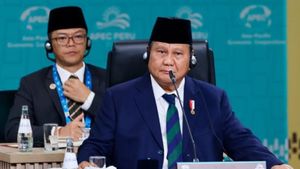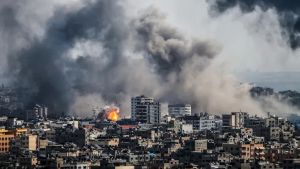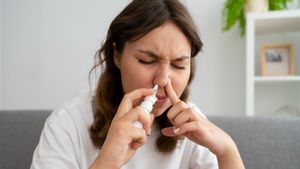JAKARTA - Deputy Chairperson of the Prosperous Justice Party (PKS) faction, Mulyanto, reminded the government not to be lulled by the temporary achievement of decreasing new cases of COVID-19 in the country. According to him, the government must continue to increase vaccination targets and trace the distribution of new cases.
The surge in COVID-19 cases in Singapore should be a warning to Indonesia. Moreover, Singapore is known as a country with 3T (testing, tracing, treatment) and vaccination capabilities which are far above Indonesia.
"If we are not vigilant, it is feared that a third wave of COVID-19 will hit our country," Mulyanto told reporters, Thursday, September 23. From the edition of 'Our World In Data' Wednesday, September 22, it was reported that 100 percent of COVID-19 in Singapore and Indonesia was due to the Delta variant. The number of daily positive cases in Singapore is about 800 new cases. Meanwhile, Indonesia is still at 3.200 new cases per day.
Mulyanto explained that when compared to population, the daily positive cases per one million population in Singapore were 148. This figure, he said, was much higher than Indonesia, which was only 12 people per one million population.
"If traced, the weak parameter in Singapore is the reproductive rate which is 1.81. Meanwhile, Indonesia is only one-third, which is 0.6," said Mulyanto.
SEE ALSO:
This reproduction rate, he continued, represents the average number of newly infected cases caused by one individual infection case.
"If the reproduction rate is greater than 1, then the infection can spread in the population. But if the reproduction rate is less than 1, then the number of cases in the population concerned will gradually decrease towards zero," he explained.
With the reproduction rate approaching two, said Mulyanto, it is estimated that the spread and increase of new cases in Singapore will still occur.
The member of Commission VII of the House of Representatives (DPR) assessed that the cause of the spike in new cases in Singapore is thought to be due to the loosening of social restrictions, the opening of schools, offices, tours, etc.
The composite index of social restrictions in Indonesia is 69 percent. While Singapore is very loose, only by 53 percent.
"Looking at the Singapore case, the government should not relax the program to limit people's mobility. Moreover, our vaccination rate has only reached 28 percent," said Mulyanto.
The English, Chinese, Japanese, Arabic, and French versions are automatically generated by the AI. So there may still be inaccuracies in translating, please always see Indonesian as our main language. (system supported by DigitalSiber.id)



